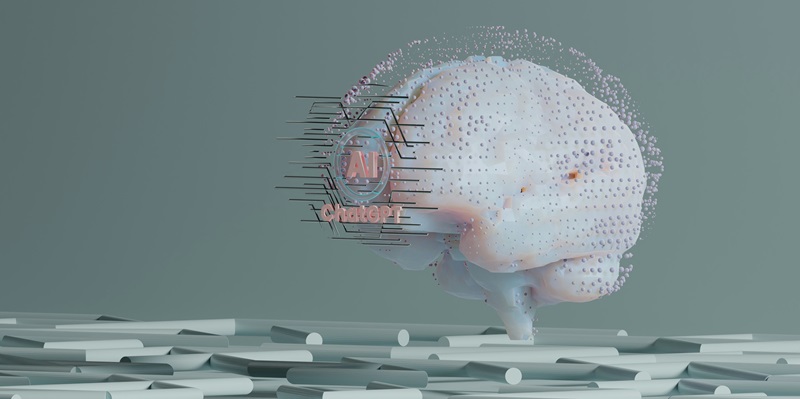The AI landscape is continuously evolving, with innovative technologies changing how we interact with machines and solve problems. Among these breakthroughs, ChatGPT, a powerful language model developed by OpenAI, has garnered significant attention as a virtual assistant capable of addressing inquiries, aiding in content creation, and engaging in casual conversations. It stands out as an advanced chatbot designed to interpret and respond to natural language inputs. By leveraging deep learning algorithms and extensive datasets, ChatGPT identifies linguistic patterns, predicts subsequent words, and generates responses that closely mimic human dialogue. Developed based on the GPT (Generative Pre-trained Transformer) model, it benefits from extensive training across various fields, including science, technology, and the arts.
ChatGPT’s ability to maintain context within conversations has made it highly effective in fostering relevant dialogues. This characteristic alone extends its versatility across numerous applications. From customer service, providing round-the-clock query resolutions, to assisting content creators with idea generation and drafting, ChatGPT is proving indispensable. Additionally, it offers educational support through detailed explanations and summaries and aids programmers with coding and debugging tasks.
Surfacing in Customer Service and Content Creation
The integration of ChatGPT into customer service platforms has revolutionized the industry by providing instant and accurate responses to user inquiries at any time of day or night. Companies have increasingly leaned towards ChatGPT for handling customer queries due to its efficiency in understanding and resolving issues quickly, greatly reducing wait times and improving overall customer satisfaction. Users benefit from precise, prompt interactions, which lead to enhanced service experiences. The ability of ChatGPT to recall previous interactions allows it to maintain continuity in customer service engagements, fostering a more personalized approach and ensuring consistent support quality.
Beyond customer service, ChatGPT is making waves in the realm of content creation. Freelancers, writers, and marketing professionals have found it an invaluable ally for generating ideas, drafting articles, and refining textual content. Its capability to generate coherent and contextually appropriate text supports creative professionals in overcoming writer’s block and streamlining the writing process. By leveraging the power of deep learning, ChatGPT offers recommendations attuned to specific styles and tones, ensuring that the resulting content aligns with the desired narrative. Its flexibility across various writing domains is a testament to its profound impact on enhancing productivity and creativity.
Educational Support and Programming Assistance
In the educational sector, ChatGPT has emerged as a powerful tool to support both students and educators. By providing detailed explanations and summaries, it helps students better understand complex topics, facilitating more efficient learning processes. The AI’s ability to break down intricate subjects into simpler terms ensures that learners of all levels can grasp difficult material. Additionally, educators have found ChatGPT beneficial for creating lesson plans, preparing educational content, and offering diverse perspectives on various subjects, all while saving valuable time.
The programming community has also significantly benefited from ChatGPT’s capabilities. Coders and developers utilize the AI to troubleshoot and debug code, enhancing their workflow and reducing the time spent resolving issues. With its extensive training in programming languages and coding practices, ChatGPT can offer precise solutions and detailed code explanations. This assistance helps professionals address challenges more efficiently, enabling them to focus on more complex and innovative tasks. By effectively combining programming knowledge with real-time problem-solving abilities, ChatGPT serves as a notable augmentation to both novice and experienced developers.
The Future of AI Interaction with ChatGPT
The AI landscape is rapidly evolving, with new technologies constantly transforming how we interact with machines and solve problems. One standout innovation is ChatGPT, a powerful language model created by OpenAI. This virtual assistant excels at answering queries, helping with content creation, and engaging in casual conversations. Designed to understand and respond to natural language, ChatGPT uses deep learning algorithms and vast datasets to identify patterns, predict words, and generate human-like responses. It is built on the GPT (Generative Pre-trained Transformer) model and benefits from extensive training across various disciplines like science, technology, and the arts.
ChatGPT’s capability to maintain conversation context has made it highly effective for engaging in relevant dialogues, enhancing its versatility across many applications. In customer service, it provides 24/7 query resolution. For content creators, it assists in idea generation and drafting. Additionally, ChatGPT is invaluable in educational settings, offering detailed explanations and summaries, and it supports programmers with coding and debugging tasks. As AI continues to advance, ChatGPT stands out as an indispensable tool for numerous fields.

